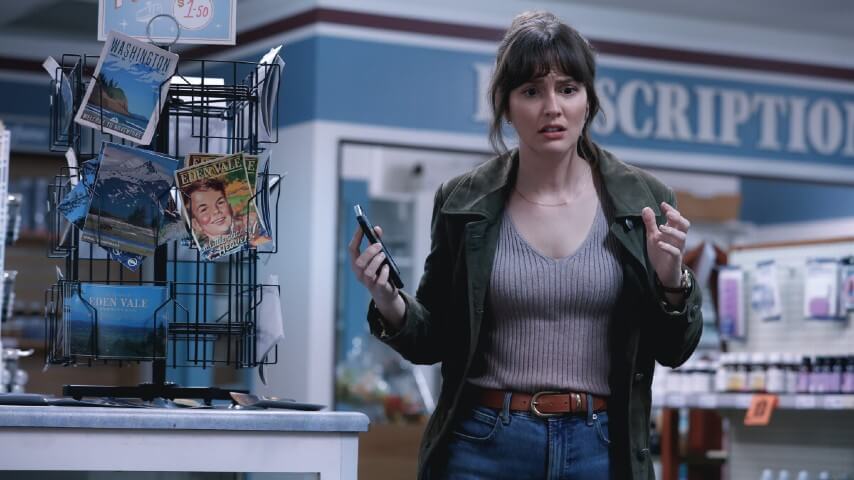Good Cop/Bad Cop is a warm, worthy addition to the procedural renaissance
Leighton Meester shines as a small-town detective in The CW's comedic mystery series.
Photo: Vince Valitutti/Future Shack Entertainment
The procedural is back. For a while, the form was eclipsed by prestige TV and streaming series’ “eight-hour movie” approach. But this television season has seen a robust return to the original titan with the success of shows like High Potential, Matlock, and The Pitt. It seems audiences craved those old familiar rhythms, well-worn beats, lived-in characters, and luxuriously lengthy episode orders. And those audiences will definitely appreciate Good Cop/Bad Cop.
The CW’s latest is a wonderfully warm, comfortingly familiar police procedural (despite being saddled with an unwieldy and somewhat inaccurate name, in itself something of a television tradition). Leighton Meester stars as Lou Hickman, a small-town detective who gets saddled with her estranged brother Henry (Luke Cook) as a partner at the behest of their father, chief of police Hank Hickman (Clancy Brown). Henry is the black sheep of the family, a Sherlock-esque savant who struggles to gel with others socially (read: neurodivergent coded). Lou, meanwhile, is just as good at the job—and a natural leader amongst her colleagues—and uses the folksy local-cop persona to her advantage.
Leighton Meester alone is enough reason to tune into the show. Her post-Gossip Girl years have been an ongoing search for a vehicle worthy of her considerable comedic talents (a moment of silence for the delightful Single Parents). Her high-wattage charm is not only Good Cop/Bad Cop‘s strongest asset but a key element of her character: People like Lou and want to open up to her. Luckily, Meester is not alone but flanked by great performances from Cook and Brown. The trio quickly settle into a believable dysfunctional family dynamic that is played mostly for laughs until it’s time to tug at the heartstrings. Hovering just on the outside is the chief’s girlfriend Nadia, who is saved from being a one-note Slavic stereotype with real emotional resonance thanks to both Blazey Best’s acting and some deft writing.
But what makes the show stand out is a vivid sense of place, something that’s lacking elsewhere in the current broadcast landscape. There’s an anonymity to the big-city settings of other procedurals, whereas in just a few episodes Good Cop/Bad Cop establishes a character and community to Eden Vale that makes it all the more rewarding to revisit as the season progresses. The town is populated by quirky characters who gossip, flirt, and feud, not unlike the citizens of Parks And Recreation‘s Pawnee. It’s a cute, cozy Pacific Northwest locale that feels inviting if it wasn’t for the criminal element. (Many of the cases are comically oddball, but there’s plenty of murder and mayhem too.) An unintentionally timely reference to Twin Peaks later in the season illustrates exactly where the show is drawing inspiration from, at least in terms of its small-town world-building.
 Keep scrolling for more great stories.
Keep scrolling for more great stories.
